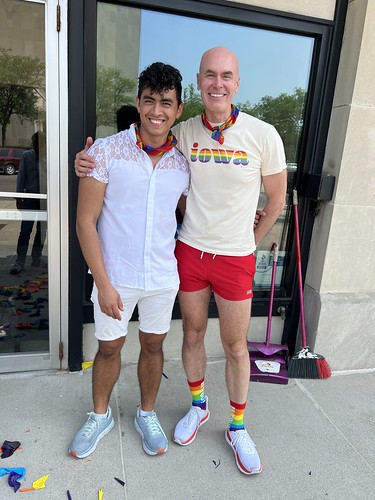Montgomery students can’t opt out of LGBTQ storybooks, judge says
LGBTQ #LGBTQ

Comment on this storyComment
A federal judge Thursday denied a request to let Montgomery County parents pull their children out of the classroom when books with LGBTQ characters are read aloud.
Several Muslim and Christian families sued Montgomery County Public Schools in May, saying the use of LGBTQ storybooks forces religious parents to either forgo their beliefs or depart the public school system. They asked to allow their children to opt out of such readings before the school year begins Aug. 28, at least on a temporary basis while litigation over a permanent exemption proceeds.
Judge Deborah Boardman of the U.S. District Court for Maryland in Greenbelt said in a 60-page opinion that the parents failed to show that the no-opt-out policy would “result in the indoctrination of their children or otherwise coerce their children to violate or change their religious beliefs.”
“With or without an opt-out right, the parents remain free to pursue their sacred obligations to instruct their children in their faiths,” Boardman wrote. “Even if their children’s exposure to religiously offensive ideas makes the parents’ efforts less likely to succeed, that does not amount to a government-imposed burden on their religious exercise.”
Last year, the books in question were not mandatory in every class. They accompany a new English language arts curriculum, as entries on a list of recommended readings teachers can draw from as they wish. The list contains titles including “Love, Violet,” a story about a girl who develops a crush on her classmate and contemplates how to create a card for her for Valentine’s Day, and “My Rainbow,” the tale of a mom who makes a colorful wig for her transgender daughter. Montgomery County school officials have said the books are age and developmentally appropriate; they disallowed parents to opt out of the books in March.
Eric Baxter, an attorney representing the religious parents, said the decision was “wrong on multiple levels,” since courts have recognized that “indirect pressure on parents or students to abandon their religious beliefs is sufficient to trigger the First Amendment.” He said the school board has “admitted it is trying to disrupt students understanding … it’s trying to disrupt heteronormativity and cisnormativity.”
In Maryland, students are allowed to opt out of certain lessons — specifically the family life and human sexuality curriculum, a unit referenced in the state’s health education framework. Proponents for an opt-out have said the elementary-level books introduce similar topics around sexuality and gender identity and, as such, they should be eligible for the same opt-out.
“In our view, it’s absurd that the school board is allowing high school students to opt out of the same material when it’s presented in their health ed classes, but not elementary school kids when it’s presented during story hour,” Baxter said in an interview. He said he will appeal the decision with the U.S. Court of Appeals for the 4th Circuit.
Following the Boardman’s decision, Montgomery County Public Schools said in a statement that it “remains committed to cultivating an inclusive and welcoming learning environment and creating opportunities where all students see themselves and their families in curriculum materials.”
Instructions to educators that accompanied the curriculum suggested sample language they might use to answer students who objected to the teachings: “I understand that is what you believe, but not everyone believes that. We don’t have to understand or support a person’s identity to treat them with respect and kindness. School is a place where we learn to work together regardless of our differences.”
The argument in the parents’ lawsuit holds that Maryland’s largest school district violated their First Amendment religious freedoms when it blocked an exemption from the readings. During oral arguments over a preliminary injunction this month, their attorneys said the books and their subsequent discussions teach young learners about gender identity and sexuality at a particularly impressionable age — after which parents struggle to convey their own religious values in contradiction of classroom teachings.
The school system’s attorneys argued that exposure to the content doesn’t violate the Constitution and that teachers don’t tell students what to believe from the books. They added that opt-outs were previously granted for a variety of reasons — whether political or religious — and, as such, removing the exemptions did not discriminate specifically against religious families.
Boardman’s opinion on the injunction was skeptical about the plaintiffs’ religious liberty arguments. “The parents are not pressured into violating their religious beliefs in order to obtain the benefits of a public education,” she wrote.
Thursday’s ruling does not amount to a final determination about the case, but Boardman signaled she could not grant an injunction, because “the plaintiffs’ free exercise claims are not likely to succeed on the merits.”
Hours before Boardman issued her opinion, several students, parents and community members spoke at a school board meeting both against and for an opt-out — even though the topic wasn’t on the agenda. For months, hundreds of Muslim and Christian parents have routinely demonstrated outside of school board meetings, protesting what they say are infringements upon their First Amendment rights to avoid the content of LGBTQ books.
When the order was issued Thursday, most demonstrators had left the school board meeting, but there were extra police officers and school security around the building’s front doors.